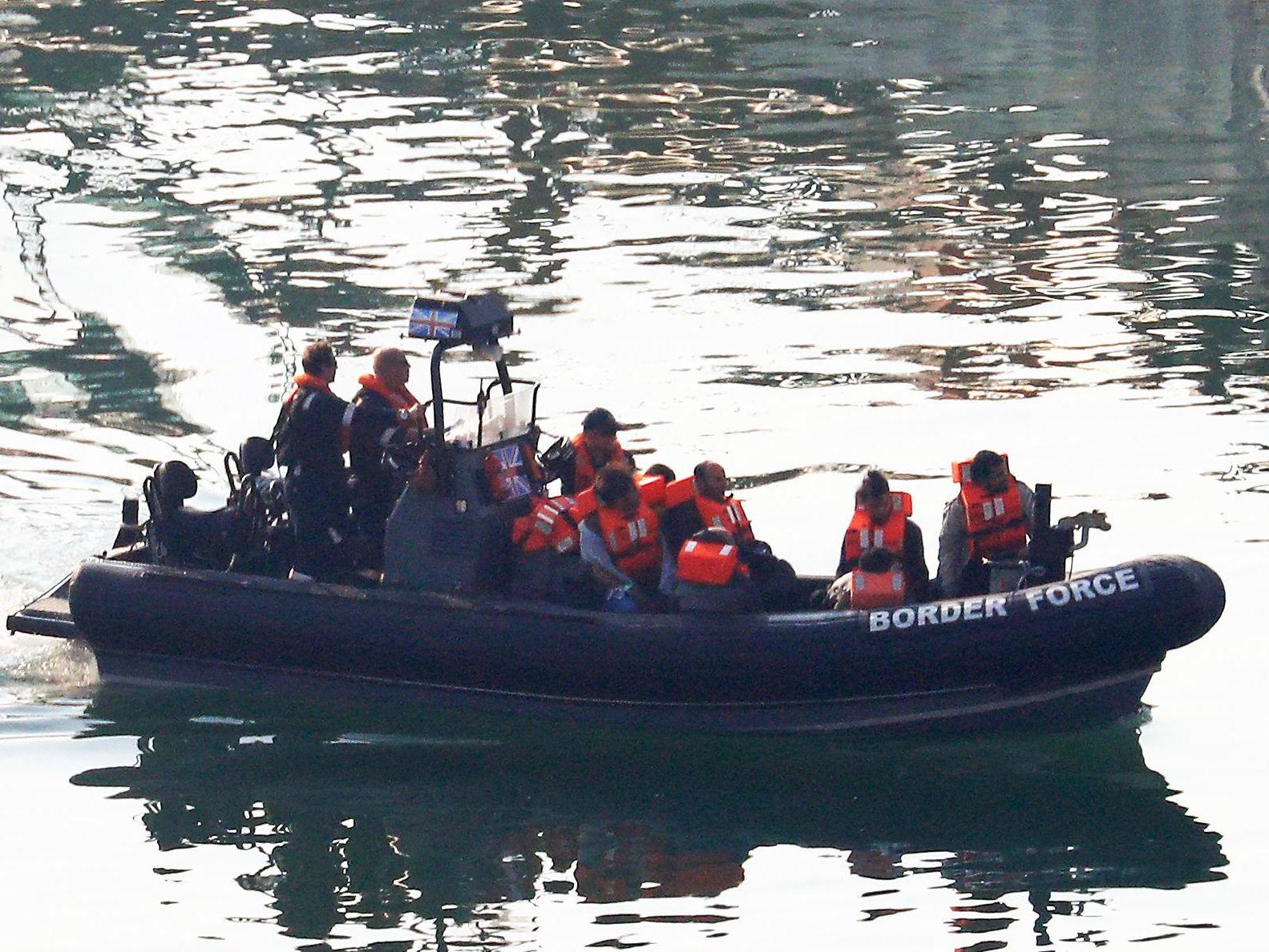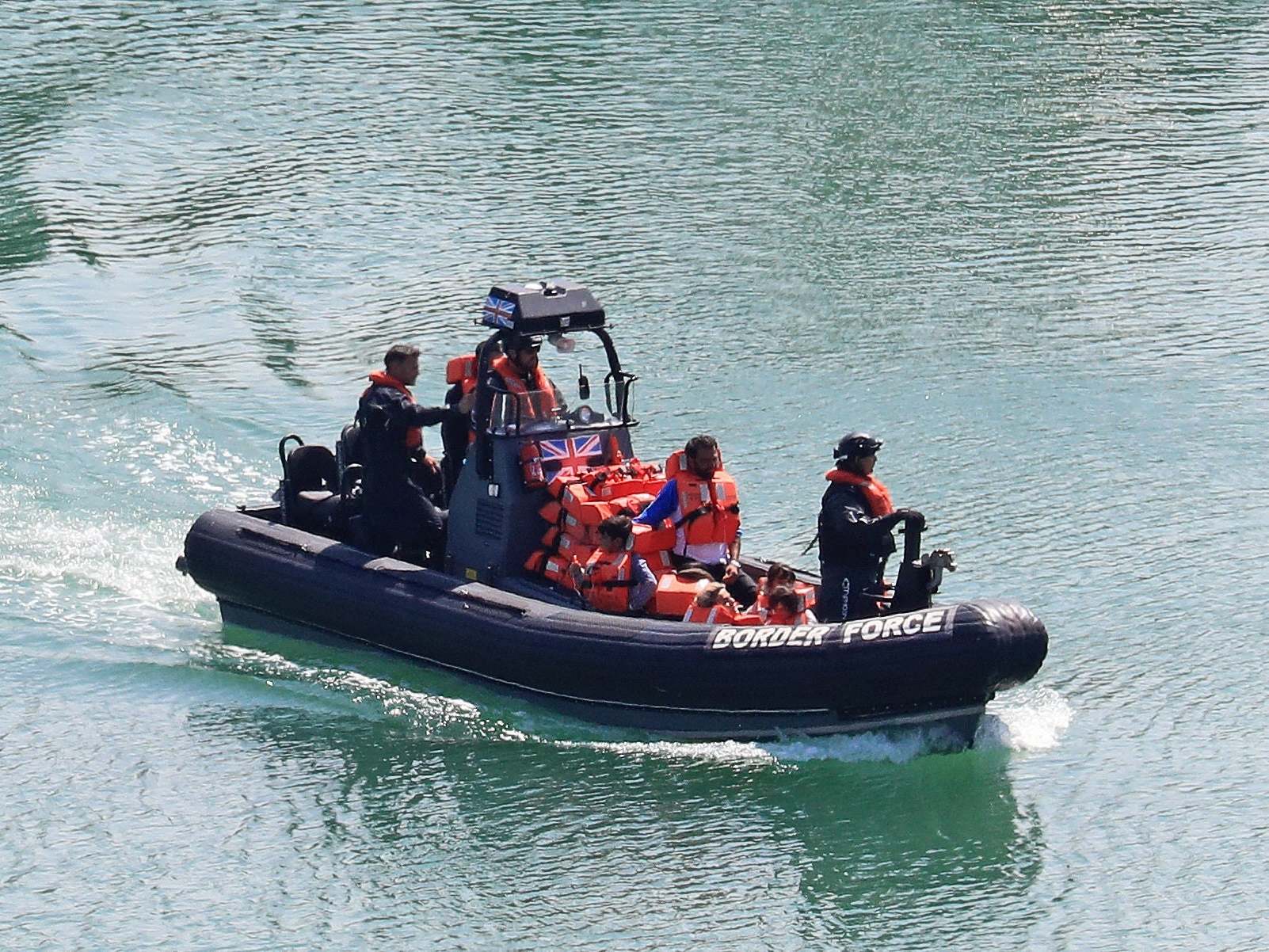Brexit: Britain’s imminent departure from EU causing surge in dangerous channel crossings, immigration officers’ union warns
Number attempting perilous crossing by small boat has increased ‘massively’ in recent weeks
Britain’s imminent departure from the European Union on 31 January is causing a surge in the number of migrants attempting to enter the country by small boat, a representative of Border Force officers has warned.
An estimated 1,800 migrants made the perilous sea crossing over the English Channel in 2019 – more than six times the figure in the previous year, when the issue was declared a “major incident” by the then home secretary Sajid Javid.
Lucy Moreton, general secretary of the Immigration Service Union, said that numbers entering the UK by small boat have increased “massively” over recent weeks.
And she said that people smugglers were using the threat of Brexit to encourage more migrants to attempt the crossing over the course of this month.
Ms Moreton told BBC Radio 4’s Today programme: “One of the drivers, we’re being told, is that people smugglers and traffickers are telling these folk that after Brexit Britain will close in some way.
“In practice, of course, this is illegal anyway, and it will be as illegal on 31 January as it is on 1 February. Brexit doesn’t make a difference, but we do know that the criminals are using this to try to drive more business.”
A joint action plan signed in January 2019 saw the UK pay £6m for increased security along the French coast, which has resulted in many more migrants intercepted by French authorities and turned back.
But the number getting through has rocketed, and just 125 people who arrived in the UK by boat in the past year have been returned to the European mainland.
“This is becoming very much a business-as-usual route,” said Ms Moreton.
“When this increased massively this time last year, we had the home secretary declaring a state of emergency. Now this is something that we just expect.
“The numbers have increased massively in the last couple of weeks. We do normally see an increase in clandestine migration over Christmas – that’s been a pattern for decades. But this is the first time that we’ve seen this quite so dramatically in small boats.”
The perception that the sea crossing is an easier way into the UK has driven up the number of attempts, and led to some migrants making their own efforts to cross the Channel without the assistance of smugglers, said Ms Moreton.

“It’s one of the more successful routes across,” she said. “The number of efforts that you have to make to cross are smaller than trying to conceal yourself in a lorry or the back of a vehicle. But it is also much, much more risky.
“Until very recently it’s been the purview of organised crime, these are things that people pay a lot of money to be put onto.
“But as it becomes more and more successful it’s more reported in the media, we’re now starting to see people that we think are trying to do this on their own. There’s the gentleman in flippers, two in a kayak, that type of thing.”
Border Force boats deployed in the Channel were there primarily to prevent loss of life and did not necessarily deter would-be migrants, said Ms Moreton.
“Once the vessels are in the water, it’s quite common for the migrants on it to threaten their own lives if they’re approached – particularly by a French vessel,” she said. “If they’re approached by a British vessel, they’re quite happy.
“Their aim is to get to the UK, and the Border Force vessels aren’t there to deter them from setting sail, they are there to ensure that they reach the other side alive.
“There are arguments around that but at sea the general rule is that life is paramount.”

Ms Moreton said that those arriving by small boat have generally been coached in the stories they should provide to enhance their chances of successfully claiming asylum.
But almost half of those intercepted already have asylum claims in other EU countries, which can be traced by fingerprints.
While there have been prosecutions for people smuggling in the French courts they have not been enough to prevent the trade, she said.
The joint action plan agreed with France in January 2019 included more than £6m of British investment in security equipment, CCTV and surveillance on the French coast.
The Home Office said an “enhanced action plan” announced in October aimed to make “attempts to cross the Channel in small boats an infrequent phenomenon by spring 2020”.
The government department pledged that British and French authorities would increase intelligence-sharing on smuggling gangs, and engage “directly with migrants to change their behaviour and deter them from making the journey to the UK”.
Join our commenting forum
Join thought-provoking conversations, follow other Independent readers and see their replies
Comments
Bookmark popover
Removed from bookmarks